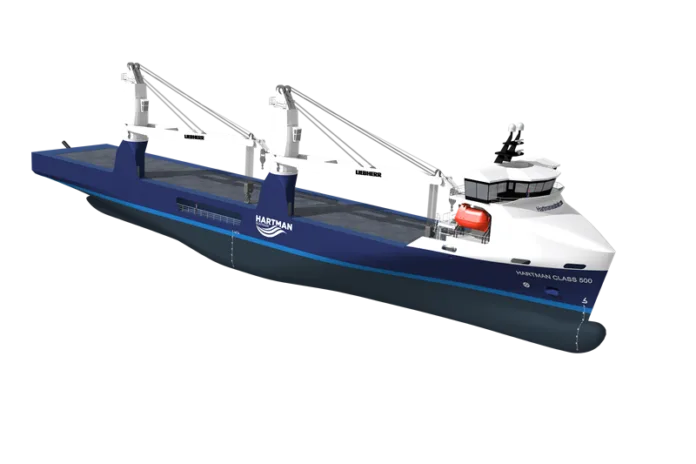Not content to wait two years for this month’s congressional repeal of the de minimis exemption to take effect, President Donald Trump on Wednesday signed an executive order that ends the ability of low-value goods to enter the U.S. duty-free and with minimal customs processing on Aug. 29.
Trump said suspending the trade privilege for individual parcel shipments was necessary to prevent people from using the system to evade tariffs systematically being imposed on all nations.
The President earlier this year eliminated de minimis privileges for small-dollar items shipped from China and Hong Kong. The new policy will force importers to pay the full tariff amount for shipments valued at $800 or less and originating from all countries.
The decision is a blow for e-commerce retailers, including mom-and-pop enterprises, that source goods from overseas and ship them directly to online buyers via cross-border parcel networks. International logistics providers and cargo airlines are also expected to lose business.
The de minimis exemption, originally designed to reduce the administrative burden on U.S. Customs and Border Protection from collecting tiny amounts of tariffs on individual parcels, was exploited by Chinese online marketplaces and other e-tailers to enable cheap, direct-to-consumer fulfillment without the need of U.S. warehouses. CBP has said the explosion of de minimis shipments has outstripped its ability to check for potential trade violations and smuggling of illicit products. The agency processes about 4 million de minimis shipments per day.
The One Big Beautiful Bill, a massive tax-and-spending package Trump signed into law at the beginning of the month, includes a provision that cancels the de minimis rule on July 1, 2027.
In 30 days, importers will be required to file customs declarations and pay duties and taxes on all imported goods, regardless of value. In many cases, those importers will be individuals who may balk at the complexity of filling out forms or paying higher prices for goods, especially as the Trump administration continues its campaign to significantly increase tariffs on nearly all trading partners. Earlier this week, for example, the EU tentatively agreed to accept 15% tariffs on its exports to smooth relations with the Trump administration.
The National Council of Textile Organizations applauded Trump’s executive order.
“The de minimis mechanism has functioned as a black box for low-cost, subsidized, and unethical Chinese imports and undermined the competitiveness of the U.S. textile industry — a key contributor to the workforce and the U.S. economy,” NCTO President Kim Glas said in a statement. “We thank the president and his administration for listening, acting, and standing with American manufacturers and workers. Today’s executive order is a game changer. It restores fairness for U.S. manufacturers, closes a major gateway for illegal and toxic goods, and lays the groundwork for reinvestment and job creation here at home.”
Trump invoked the rarely-used International Emergency Economic Powers Act to declare that illegal smuggling of fentanyl from Canada, Mexico and China constituted a national emergency and justified revoking de minimis, even though little of the synthetic drug comes via Canada. He quickly suspended the decree until the Commerce Department determined CBP had systems in place to collect duties from so many small shipments. In early May, Trump reimposed tariffs on low-value shipments from China and Hong Kong. Since then Temu and Shein sales in the U.S. have fallen 50% by some estimates.
The executive order says those systems are now in place to process parcels from Canada, Mexico and the rest of the world as formal customs entries. Trump said suspending de minimis writ large was necessary as a remedy for the U.S. trade deficit, which he characterized as a national emergency. In recent weeks, the Trump administration has secured agreements from the United Kingdom and Japan to impose 10% and 15% tariffs, respectively. Most countries are currently operating under a universal 10% tariff that is set to expire on Aug. 1. The U.S. has threatened to impose double-digit tariffs of varying degrees on other countries that haven’t reached tariff agreements by that date.
The executive order requires air carriers and other transportation providers to collect and remit duties to CBP for shipments moved through the international postal system since the U.S. Postal Service doesn’t have the ability to process entries through CBP’s automated system.
U.S.-based logistics providers are expected to benefit from the new trade policy as retailers will need to ship inventory in bulk and store it in domestic warehouses for fulfillment.
Click here for more FreightWaves/American Shipper stories by Eric Kulisch.
Write to Eric Kulisch at [email protected].
RELATED STORIES:
House considers universal de minimis ban as fees on China parcels ease
CMA CGM to invest $20B in US shipping, supply chain capabilities
The post Trump revokes de minimis privilege for global e-commerce imports appeared first on FreightWaves.














